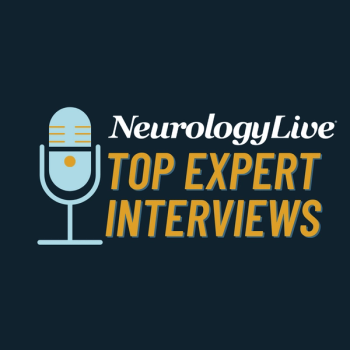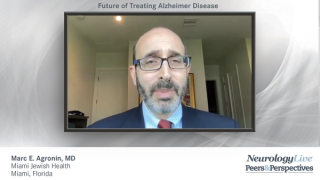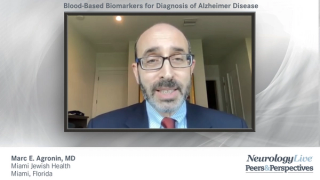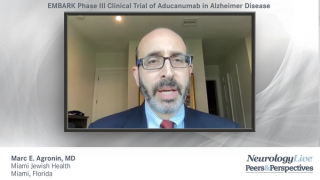
Dementia and Alzheimer Disease
Latest News
Latest Videos

CME Content
More News

Regions typically affected by Alzheimer disease-related neurodegeneration were similarly protected by the carriership of at least 1 ε2 allele, regardless of their load.

Neurology News Network for the week ending January 15, 2022. [WATCH TIME: 4 minutes]

Expert clinicians offer their insight on costs of Alzheimer drug development, a new agent for generalized myasthenia gravis, migraine in the emergency department, educational sleep medicine “boot camps”, AES 2021, and more.

Take 5 minutes to catch up on NeurologyLive®'s highlights from the week ending January 14, 2022.

Jennifer Frontera, MD, professor of neurology, NYU Langone Grossman School of Medicine, discussed findings from a recently published study investigating neurological complications in hospitalized patients with COVID-19.

Jeffrey L. Cummings, MD, ScD, comments on the unmet needs and future outlook for the Alzheimer’s treatment landscape.

Dr Cummings relays how testing methods influence the treatment course for Alzheimer’s disease.

Outlining the findings from a recent study comparing SAGE to the Mini-Mental State Examination, the director of the Division of Cognitive and Memory Disorders at the Ohio State Wexner Medical Center stressed the importance of identifying patients at-risk for dementia early on. [WATCH TIME: 6 minutes]

Catch up on any of the neurology news headlines you may have missed over the course of the last month, compiled all into one place by the NeurologyLive® team.

The Anavex Life Sciences treatment was found to be well tolerated in all cohorts of healthy patients with no serious adverse events reported. It is in development for conditions such as frontotemporal dementia.

The director of the Division of Cognitive and Memory Disorders at the Ohio State Wexner Medical Center discussed benefits of both the pen-and-paper and digital assessments. [WATCH TIME: 7 minutes]

The Centers for Medicare and Medicaid Services issued a proposed decision memo detailing the coverage criteria for patients with Alzheimer disease to be covered by the federal health insurance platform when administered aducanumab (Aduhelm; Biogen).

The director of the Division of Cognitive and Memory Disorders at the Ohio State Wexner Medical Center discussed motivations behind creating the pen-and-paper test, as well as its digital companion. [WATCH TIME: 2 minutes]

The research assistant professor at the Buffalo Neuroimaging Analysis Center provided context on how different forms of multiple sclerosis impact cognitive decline in patients. [WATCH TIME: 4 minutes]

Here's what is coming soon to NeurologyLive®.

The association of feelings of worse performance depended on age, with a higher frequency of amyloid positivity at older ages and a lower frequency at lower ages.

Douglas Scharre, MD, discussed the key findings from a recent study evaluating the Self-Administered Gerocognitive Exam and its application for at-risk populations.

Douglas Scharre, MD, provided an overview of the pen-and-paper and digital versions of the test, which do not require an administrator.

Take 5 minutes to catch up on NeurologyLive®'s highlights from the week ending January 7, 2022.

The director of the Alzheimer's Disease Care, Research and Education Program at the University of Rochester offered an extensive overview of 3 monoclonal antibodies in development for Alzheimer disease. [WATCH TIME: 9 minutes]

Jeffrey L. Cummings, MD, ScD, discusses the importance of aducanumab, a recently approved treatment for Alzheimer’s disease.

Jeffrey L. Cummings, MD, ScD, delves into the biomarker assessments that establish a diagnosis of Alzheimer’s disease and their use in clinical practice.

Investigators also pointed to the potential repetitive administration of the SAGE test to identify stability or decline, effectively providing an objective cognitive biomarker.

The director of the Chambers-Grundy Center for Transformative Neuroscience at the University of Nevada–Las Vegas detailed the steps necessary to lower wasted costs from Alzheimer disease drug development and improve regulatory success. [WATCH TIME: 4 minutes]

The research assistant professor at the Buffalo Neuroimaging Analysis Center discussed the importance of continued research on how patients with multiple sclerosis experience cognitive decline as they age.




















